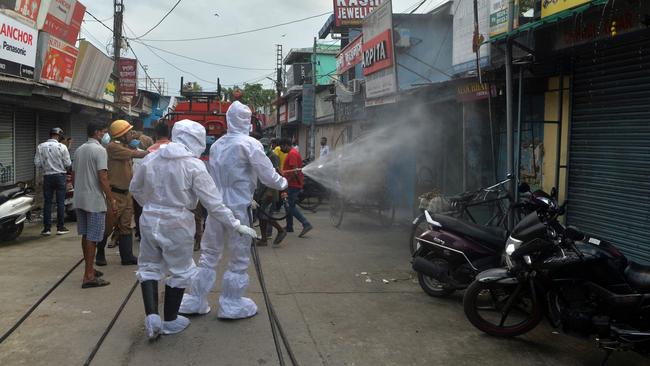
There’s no JobKeeper or Seeker, nor much recourse to family or friends, for them.
“The cumulative hit to GDP growth over 2020-21 for emerging market and developing economies, excluding China, is expected to exceed that in advanced economies,” the International Monetary Fund’s chief economist said yesterday.
The IMF’s latest economic forecasts lay out how much worse the global downturn has become since April. The cumulative economic losses over two years have been revised up from $US9 trillion to $US12 trillion. The sum of government bailout packages has increased from $US8 trillion to $US11 trillion.
Since the end of 2019, the equivalent of 300 million full-time jobs have been lost. “(And) of two billion informally employed workers worldwide, close to 80 per cent have been significantly affected,” it said.
Most of those informally employed work in developing countries. “The hit to the labour market has been particularly acute for low-skilled workers who do not have the option of working from home,” it added.
Schools have been closed in 150 countries, affecting about 1.2 billion school children, or 70 per cent of the total. “This will result in significant loss of learning, with disproportionately negative effects on earnings prospects for children in low-income countries,” the IMF said.
India, among the poorest countries in the world and home to almost 1.4 billion people, has had its growth outlook slashed by more than any other country.
With about 10 deaths per million people — compared with more than 600 in Spain — it has been relatively untouched by the pandemic, but its fragile economy is poised to slump 4.5 per cent this year, 6.4 percentage points lower than the IMF forecast in April “following a longer period of lockdown and slower recovery than anticipated”.
The IMF is worried the pandemic will fuel a resurgence in poverty. The share of the world’s population living on less than $US1.90 a day has fallen from 35 per cent in 1990 to 10 per cent.
“This progress is imperilled by the COVID-19 crisis, with more than 90 per cent of emerging market and developing economies projected to register negative per capita income growth in 2020,” it said.
The world’s poor have little political and economic power. If the decision to lock down economies is a tough one in the West, it’s even tougher in the Third World.



Apart from the 480,000 people who’ve died — overwhelmingly the elderly in rich countries — it’s the poor and young in low-income countries who are suffering the most in the global war on COVID-19.